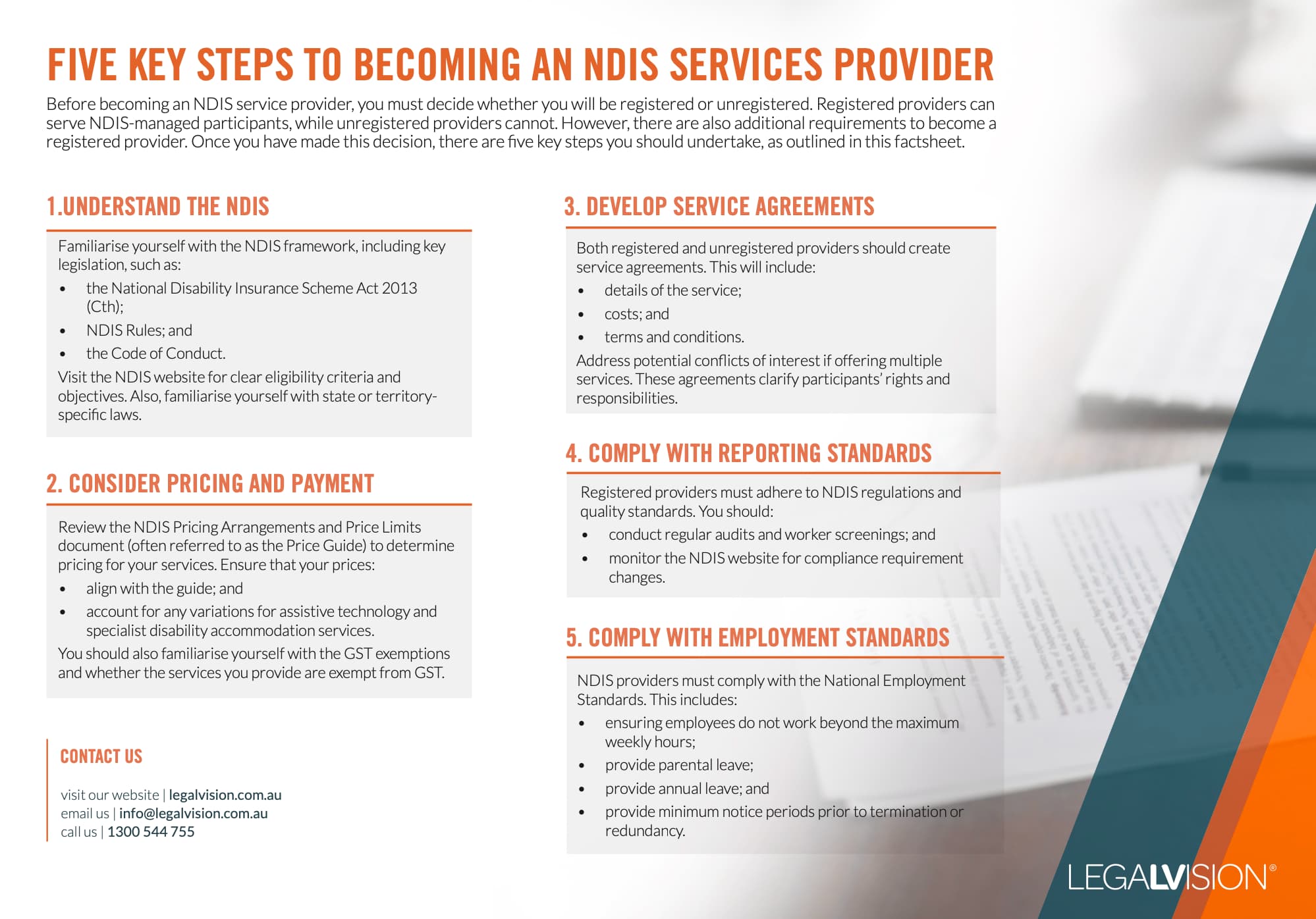In Short
- Starting a nursing agency involves obtaining the necessary licences and meeting industry-specific legal requirements to operate lawfully.
- Recruiting and managing qualified staff is essential to provide high-quality services and maintain a strong reputation in the healthcare sector.
- Developing clear client agreements and maintaining compliance with industry regulations are key to successfully running a nursing agency.
Tips for Businesses
Research and secure the necessary licences and permits before launching your nursing agency. Implement a robust recruitment process to hire skilled nurses, ensuring they meet professional standards. Develop comprehensive client agreements and stay informed about healthcare regulations to ensure compliance. Regularly update policies and procedures to reflect industry changes.
Starting a nursing agency can be a rewarding venture that addresses the growing need for quality healthcare services in Australia. This article will walk you through the essential steps and legal considerations to be aware of when looking to start your own nursing agency. This ensures you are well-equipped to navigate the legal complexities and establish a successful business.
Developing your Business Plan
Before you start your agency, you should develop a clear business plan. Research the market and understand who your potential clients might be and whether there are any competitors in your area. Consider developing a clear marketing strategy, outlining how your business’s financial aspect will operate and defining your agency’s operational needs.
Your business plan should also outline the types of nursing services you will offer, such as:
- aged care;
- disability support; or
- hospital staffing.
What Business Structure is Right for You?
Selecting the right business structure is a critical decision that will impact your agency’s operations and legal obligations. Your options include:
- being a sole trader, which is simple to set up but carries personal liability risks;
- operating in a partnership structure which may be preferable if you want to set up your business with another trusted person. This option allows you to share responsibilities, but you also have to share the liability personally as well; or
- setting up a company, which offers personal asset protection and can enhance credibility, but does involve more complexity at the set up stage.
Understanding Your Regulatory Compliance Requirements
The healthcare industry is heavily regulated. Therefore, understanding your obligations and compliance requirements regarding the operation of your nursing agency is essential to ensuring the safety of your clients and the credibility and success of your business. You should consider the following below.
Nursing Qualifications
While you do not necessarily need to hold nursing qualifications to run a nursing agency (unless you are providing nursing services as well as part of your role), you will need to ensure that the nurses you employ are fully qualified and registered pursuant to the regulatory requirements.
Location
You will need to ensure that your operations are in compliance with state specific health regulations that apply to your delivery of nursing services, depending on where you are operating.
Your Clients
Depending on the specific clients you provide services to, there may be further regulations that apply. For example, if you are providing nursing services to people with disabilities, you may have certain regulatory obligations under the National Disability Insurance Scheme (NDIS), or similarly if you are providing services in the aged care sector, alternative regulations may apply to your services.
Privacy Obligations
In providing nursing services, you will likely be required to collect, store and use the personal information and health information of your clients. You have obligations under Australian privacy laws as to how you are able to collect, use and store such information. Specifically, health information is considered ‘sensitive information’ under the Australian privacy laws, and is subject to a higher degree of protection under the legal framework, which you need to be aware of in order to comply.
Essential Legal Documents for Your Nursing Agency
Implementing the right legal documents will protect your agency’s interests and help you to maintain professional standards. Key documents include:
- Employment Agreements for Nurses: These contracts should clearly define roles, responsibilities, working hours, compensation, and terms of employment for your nursing staff.
- Client Service Agreements: These agreements will outline the services you will provide, pricing, payment terms, and any limitations or exclusions of your agency’s responsibilities.
- Privacy Policy: This document will outline to your clients how you will collect, use and store their personal information. It is crucial for ensuring compliance with your obligations under Australian privacy laws, and will assist you in protecting patient information.

Understand five key steps you should know to become an NDIS service provider with this free LegalVision factsheet.
Key Takeaways
When starting a nursing agency in Australia, you should ensure that you have thoroughly considered the legal requirements. You should choose the right business structure based on your needs and risk tolerance and ensure that you understand and comply with all regulatory requirements specific to your nursing services.
Implementing robust privacy practices to protect sensitive health information and establishing the essential legal documents, including employment agreements, client service agreements and privacy policies will assist you in establishing a successful nursing agency.
If you have any questions about starting your nursing agency, our experienced business lawyers can assist as part of our LegalVision membership. For a low monthly fee, you will have unlimited access to lawyers to answer your questions and draft and review your documents. Call us today on 1300 544 755 or visit our membership page.
Frequently Asked Questions
The main regulatory compliance considerations include ensuring all employed nurses are fully qualified and registered, adhering to state-specific health regulations, complying with sector-specific regulations (e.g. for disability or aged care services), and meeting obligations under Australian privacy laws.
The essential legal documents for a nursing agency you should have include employment agreements for your nursing staff, client service agreements outlining your services and terms and privacy policies to ensure you comply with your privacy obligations.
We appreciate your feedback – your submission has been successfully received.











